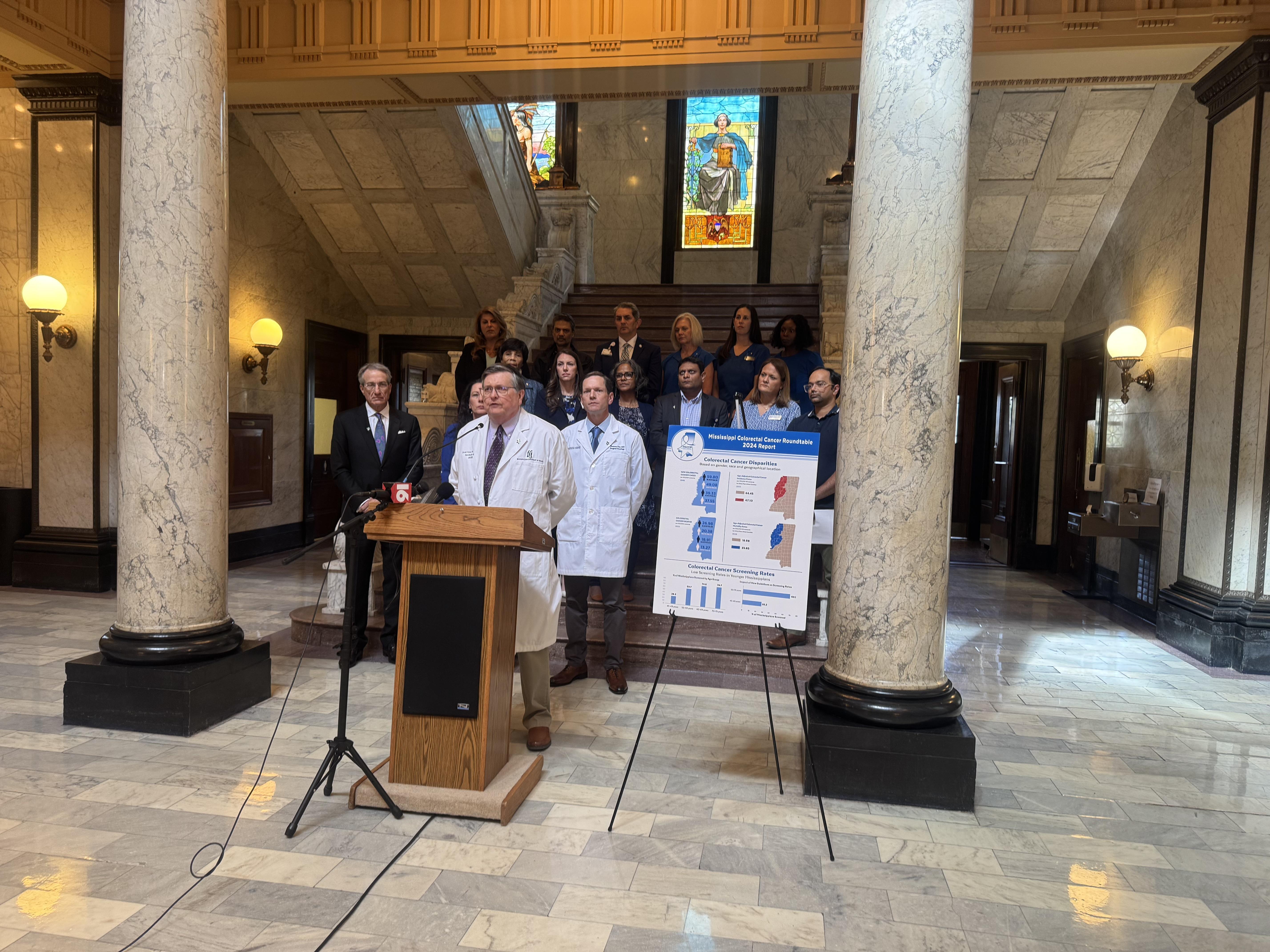This type of cancer occurs when out of control cells begin to grow in either the colon or the rectum. Dr. Dan Edney is the state health officer.
“Colorectal cancer is a largely preventable illness,” he said. “So we are not screening to find cancer necessarily. We are screening, trying to find the precursors to cancer and to try to prevent people from ever getting colon cancer like my father did, who died at age 56 from a lack of the technology back then to screen.”
Screening can be done through a colonoscopy, a stool test or a CT colonography. In 2021, the recommended screening age for colorectal cancer was lowered from age 50 to 45.
“We lead the nation in colorectal cancer deaths,” Dr. Edney said. “That is unacceptable. We lead the nation in numbers of cases. That is unacceptable. That is all driven by difficulties with screening.”
Dr. Shannon Orr is the division chief of surgical oncology at the University of Mississippi Medical Center.
“Unfortunately we are seeing patients as early as early 40s and even late 30s with colorectal cancer,” he said.
Dr. Orr says there is significant geographic variability of colorectal cancer across the state.
“If you compare the Mississippi Yazoo Delta to the rest of the state, this area has a significantly higher incidence of colorectal cancer, and the mortality is significantly higher,” he said.
According to the American Cancer Society, African Americans are more likely to get colorectal cancer and more likely to die from it than most other groups.
Screenings for the disease have declined since the recommended screening age was changed. Dr. Orr says only about 28% of patients 45 - 49 years old were screened in 2022.
“The greatest barrier to colorectal cancer screening is insurance,” he said. “You're three times more likely to be screened if you're insured as opposed to uninsured.”
According to the American Cancer Society, high rates of colorectal cancer may be linked to smoking, obesity, poor diets and alcohol.
“We see around the world that societies that have high fiber diets, lower fat diets have a much lower incidence of forming polyps and colon cancer,” Dr. Edney said. “Of course, the American diet, and particularly the Southern diet, is not real strong on fiber.”
March is colorectal cancer awareness month.




